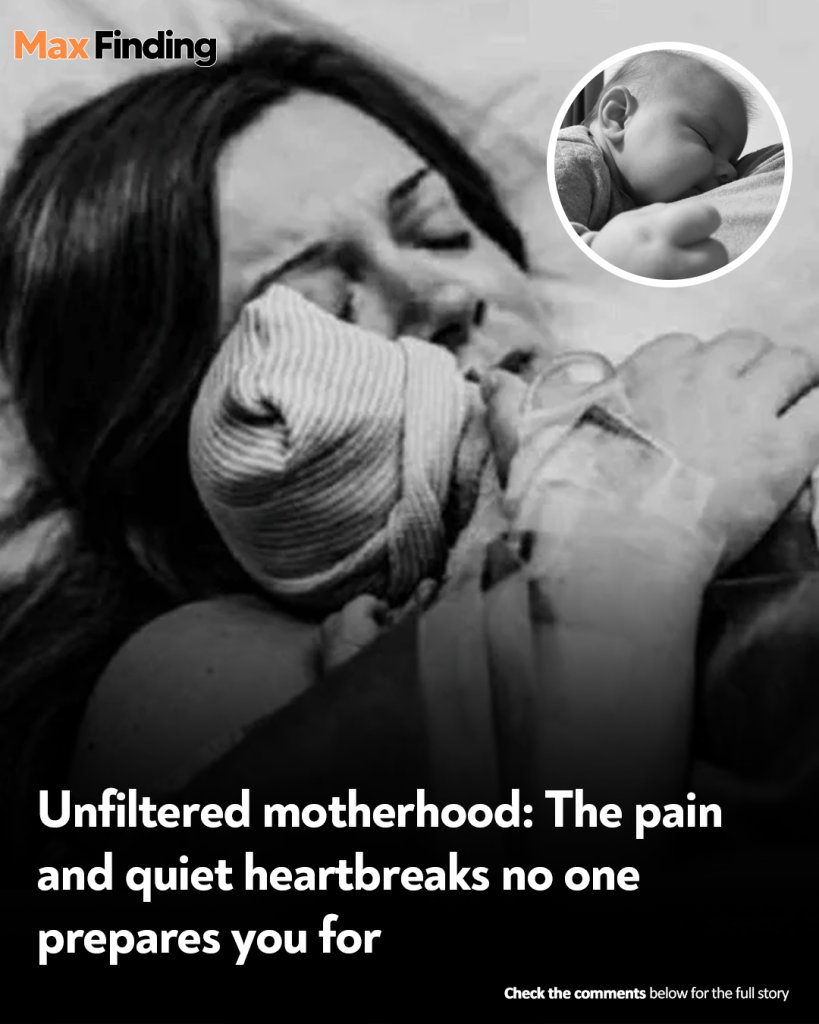Before a woman becomes a mother, she hears countless stories about the transformation ahead. People speak of an all-encompassing love, of magical first moments, and the profound joy of bringing a new life into the world. All of this is true. But what often goes unsaid are the other truths—the raw, tender, and intensely personal shifts that fundamentally rewrite a woman’s existence. These are the secrets whispered in the quiet moments between mothers, the realities that are felt deep in the bones but rarely make it into the mainstream narrative.
The first and most immediate change is physical. It is a profound and often jarring reclaiming of the self from a body that has been a vessel for nine months. The article a mother-to-be might read speaks of “getting your body back,” but the reality is far more complex. The skin on her stomach might not snap back into place; it may forever carry the soft, wrinkled texture of a half-empty balloon, a gentle reminder of the life it once held. Stretch marks, like silver rivers, map the incredible journey of expansion. Scars, whether from childbirth or surgery, become permanent landmarks. This new body is not a failure to return to a former self, but a testament to a strength she never knew she possessed. It is a living history of her love.
Then there is the sensory experience of motherhood. In the quiet of the late evening, after a day filled with the weight of a baby in her arms, the pull of a toddler on her leg, and the constant chorus of “Mama,” a mother may feel a sensation she never knew had a name: she feels “touched out.” It is a paradoxical state of being—craving solitude and the sanctity of her own personal space while simultaneously being the source of all comfort and security for her child. Her body is a playground, a napkin, a human pacifier, and a safe harbor. This constant state of being physically needed can be draining, a silent exhaustion that only other mothers can truly understand.

Perhaps the most profound transformation is the one that happens in the mind. The world, once a place of adventure and opportunity, is suddenly recast as a landscape of potential threats. This is not pessimism; it is the birth of a primal, protective instinct. Every sharp corner on a coffee table, every unlocked cabinet, every car that speeds down the street becomes a potential danger. A mother’s brain is fundamentally rewired to scan for risk, a constant, low-level hum of anxiety that underscores her every thought. This newfound fear is the heavy price of a love so immense it becomes her most deeply rooted vulnerability.
And that love—it is the fierce, magnificent force that powers through all the exhaustion and worry. It is not always the gentle, Hallmark-card version. It is a raw, visceral, and almost violent love. It’s the feeling that if her child were in danger, she would not hesitate to stand before a charging bear or lift a car with her bare hands. It is an instinct that is terrifying in its intensity, a cellular-level promise to protect this small being against all threats, at any cost. This is the “why” behind every sleepless night, every sacrifice, every moment of fear.
Ultimately, motherhood is a complete dismantling of the self to make way for something new. The woman she was before—her ambitions, her hobbies, her carefree moments—does not vanish, but she is irrevocably changed, integrated into a new, more expansive identity. The raw skin, the feeling of being touched out, the ever-present fear, and the ferocious love are not just side effects of the journey. They are the journey. And in the silent, knowing glance exchanged between two mothers across a crowded park, there is a shared understanding of these tender truths, a powerful and unspoken sisterhood forged in the beautiful, messy, and profound reality of motherhood.